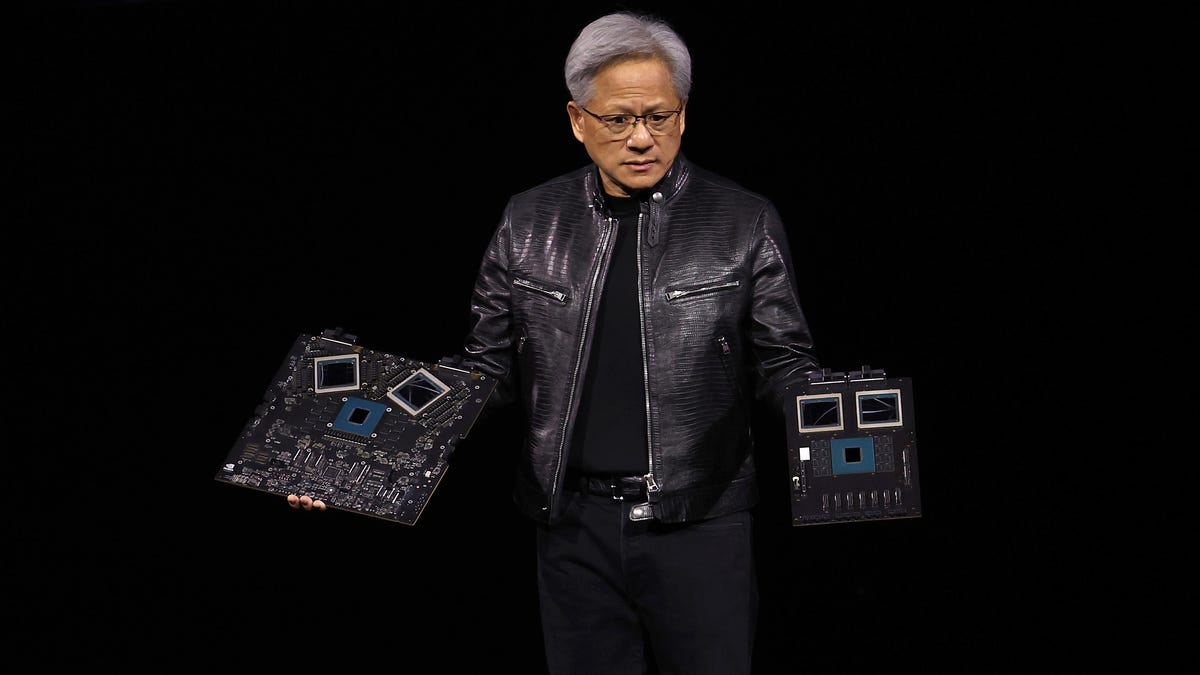AI Under Fire: Perplexity’s Legal Defense, U.S. Security Alerts, and New Tech Breakthroughs

In todays Download: Perplexity defends its AI in a lawsuit spotlighting media pushback, while the U.S. flags security concerns over China’s AI use. From NVIDIA's chip improvements to Qualcomm's car tech with Google and DeepMind’s watermarking tool, AI advancements face challenges and push innovation.
Todays Download
🔮 Perplexity Defends AI Amid Dow Jones Lawsuit

Source: Perplexity
Perplexity responds to a lawsuit by defending its AI's transparency and source citation, criticizing media resistance to innovation. The company seeks collaboration through revenue-sharing models with publishers.
On Monday, Perplexity was sued by the Wall Street Journal and the New York Post. The company expressed disappointment, noting that the lawsuit represents a media industry resistant to the transformations brought by generative AI. Perplexity emphasizes that its AI tools empower users to learn in novel ways, supporting a culture of accessible knowledge, citing sources with transparency—an approach the company claims others are now adopting.
Context: Around three dozen media companies have filed similar lawsuits against generative AI tools.
Perplexity’s Argument: AI, according to Perplexity, aligns with legal standards and enables public knowledge sharing without infringing on exclusive content ownership.
Defensive Stance: Perplexity contends the claims are “misleading at best,” particularly the characterization of AI outputs as “regurgitated” media.
Rebuttal: Perplexity states it responded promptly to outreach from News Corp. but was met with litigation instead of dialogue.
If you're enjoying Nerdic Download please forward this article to a colleague.
It helps us keep this content free.
⚠️ U.S. Warns China's AI Usage Poses Global Security Risks

U.S. National Security Advisor Jake Sullivan
Source: Getty Images
The U.S. raises concerns over China’s use of AI for population control and spreading misinformation, announcing new policies to counter these threats.
At a recent event, U.S. National Security Adviser Jake Sullivan highlighted the global security risks posed by China’s AI applications, stressing the urgency of providing safer AI tools to U.S. allies. The new directive aims to counteract China's AI-related influence by offering alternatives tailored for developing economies, focusing on transparency and ethical applications.
🚗 Qualcomm and Google to Collaborate on GenAI for Cars

Qualcomm and Google team up to bring generative AI to cars, enhancing user experience through digital cockpits with real-time updates and voice assistance.
This collaboration will utilize Snapdragon Digital Chassis and Google Cloud's AI tools to create a reference framework for generative AI-enabled vehicles. Qualcomm is leading the customization and distribution, hoping to empower automakers to bring innovative, AI-integrated vehicles to market faster.
Framework Components: Snapdragon technology and Google Cloud form the foundation.
Automotive Benefits: Accelerated deployment of connected services and voice-responsive systems for enhanced in-car experiences.
💽 NVIDIA CEO Admits AI Chips Design Flaw

NVIDIA acknowledges a design flaw in its Blackwell AI chips, which temporarily affected production but expects strong future revenue.
NVIDIA CEO Jensen Huang confirmed the issue, stating that a minor design error led to low production yields. After adjusting the chip’s design, production has resumed with expectations for substantial revenue in the upcoming fiscal quarter. NVIDIA’s stock has continued to perform well, despite slight fluctuations.
🔒 DeepMind Open-Sources AI Watermarking Tool

Google DeepMind open-sources SynthID, a watermarking tool for AI-generated content to promote transparency in AI.
SynthID, already integrated into Google’s Gemini and Vertex AI, embeds undetectable watermarks without affecting content quality. By open-sourcing the tool, DeepMind aims to encourage industry-wide adoption of watermarking, which remains a growing concern amid the rise of AI-generated media.
Key Features: Works across various content types, including audio, video, and images.
Impact: SynthID’s open-source availability positions it as a potential watermarking standard across the AI industry.
🎙️ Create Your Own AI Voice Clone

ElevenLabs offers a user-friendly platform to clone your voice for diverse applications, from audiobooks to AI-powered personal assistants.
Sign up at ElevenLabs and go to “Voices”.
Click "Add a new voice" and choose "Professional Voice Cloning."
Record 30+ minutes of clear, varied speech samples.
Upload your audio and wait for processing (takes a few hours).
Test and use the Text-to-Speech tool to test your voice clone once processed.
Pro Tip: Utilize ElevenLabs’ API to integrate your AI voice across platforms like HeyGen, giving your digital avatar a personalized touch.
⚡ Quick News
OpenAI scientist Noam Brown revealed at TED AI that giving AI models 20 seconds to "think" can match the performance boost of scaling up training data 100,000x.
Chinese robotics startup EngineAI just introduced SE01, a life-size humanoid robot that has a much more human-like gait to its walk.
OpenAI researchers unveiled sCM, a model that achieves diffusion-level image quality in just two steps, dramatically reducing generation time by as much as 50x.
Over 10,500 artists, actors, and authors signed an open letter condemning tech companies' unauthorized use of creative works for AI training.

Reply